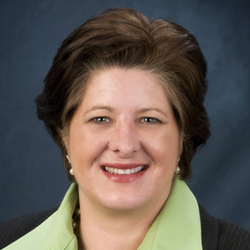Changing the Conversation: North Carolina Healthcare Association Counters the Blame Debate on the High Cost of Care in the U.S.
Health care costs in the U.S. continue to rise. Who’s responsible? There are many contributors, but hospitals are taking a disproportionate share of the blame in the media. While they bear some responsibility, current news coverage pins most of the blame on them. How can health systems take charge of the narrative?
// By John Marzano //
 The cost of health care in the U.S., as part of the Gross Domestic Product (GDP), has increased to the point that it eats away at all aspects of everyday life, even forcing consumers to forego routine care because they can’t afford it.
The cost of health care in the U.S., as part of the Gross Domestic Product (GDP), has increased to the point that it eats away at all aspects of everyday life, even forcing consumers to forego routine care because they can’t afford it.
Health insurance and pharmaceutical industries have successfully controlled the narrative, pointing to hospitals as the culprit, yet both sectors report record profits while hospitals are challenged by razor-thin margins.

Cynthia Charles, vice president of public relations & communications at North Carolina Hospital Association
United HealthCare, the largest health insurer in the U.S., recently announced projected revenues of $360 billion for 2023. That’s more than all the major U.S. oil and gas companies combined. This bold announcement comes at a time when hospitals continue to be squeezed by government reimbursement along with disallowed payments by these same insurers.
The North Carolina Healthcare Association (NCHA) is bringing attention to this debate by taking a lead to change the narrative.
In December 2022, Cynthia Charles, vice president of public relations & communications at NCHA, joined Ryan Colaianni, executive vice president of communications & crisis/issues at Revive, in a Strategic Health Care Marketing webinar to share their perspectives on balancing the ongoing discussion.
“Framing the issue is clear,” says Charles. “It’s a value attack and a growing assault on provider reputations related to their role in the cost of care. When 65 percent of consumers agree that confidence in their health care provider has declined, changing the conversation through additional education is necessary to protect that community trust. Reputations are suffering.”
